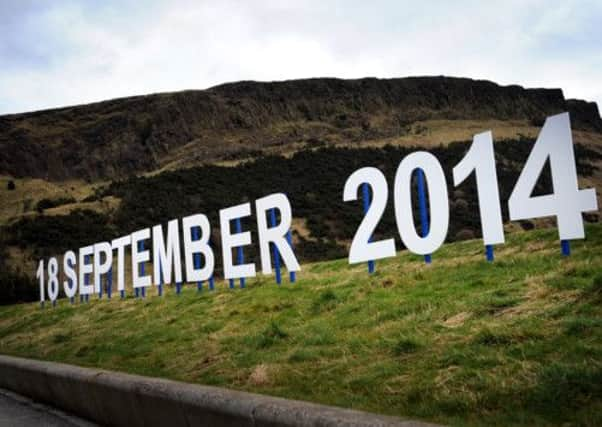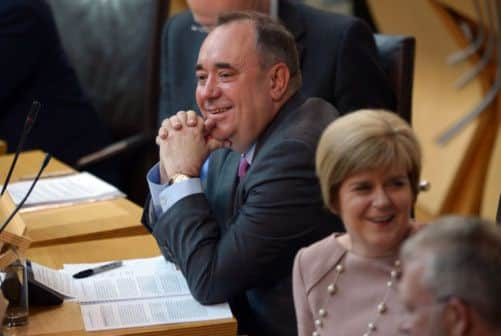Scottish independence: One in four will vote yes


The TNS poll, published today, puts backing for independence at just 25 per cent – down fully 8 per cent on the company’s last poll in February, when the same question was asked.
Pro-Union campaigners said the poll showed that one in every three pro-independence backers had given up their support since the SNP’s 2011 election win.
Advertisement
Hide AdAdvertisement
Hide AdBut the poll also revealed that the number of people who say they intend to vote No next September has also fallen compared to earlier this year – by 5 per cent.


By far the biggest shift in the poll are the numbers of “don’t knows”, whose numbers have rocketed from 15 per cent of people in February to 28 per cent now.
Pro-independence campaigners focused on that figure, saying they expected more people to move into the Yes column as they got more information about independence.
The poll comes after two contradictory surveys earlier this week. A YouGov poll at the weekend found 59 per cent of people voting No and 29 per cent voting Yes. However, a Panelbase poll, commissioned by the SNP, found support for independence at 44 per cent, with 43 per cent saying No.
Pollsters say there remains a high degree of uncertainty among the much of the electorate which may explain the volatility.
The TNS poll, which posed the question to be put to voters – “Should Scotland be an independent country?” – also reaffirmed the difficulty the pro-independence side has in attracting women and elderly voters, with just one in five saying they would vote Yes.
While the pro-independence side has more success among 16-34 year-olds – with 29 per cent saying they will vote Yes – they are also the least likely to vote, with only 45 per cent certain to do so.
Meanwhile, campaigners will be concerned by a figure showing that just over half (55 per cent) of those who voted SNP in 2011 also say they support independence.
Advertisement
Hide AdAdvertisement
Hide AdThe 25 per cent figure backing independence is the lowest since TNS began polling on the issue in 2007.
Tom Costley, TNS Scotland’s director, said: “The surge (in don’t knows) may have arisen because both campaigns have succeeded in giving rise to doubts among some who have previously backed the other side, without generating positive support for their positions. With so many undecided, there is still all to play for.”
Blair Jenkins, chief executive of the pro-independence campaign group Yes Scotland, added: “We know from our own research that the more people learn about independence the more likely they are to vote Yes because they realise that having a government they vote for in Scotland is the best way to build a fairer, more prosperous country.”
However, Blair MacDougall of the pro-UK Better Together campaign said: “In the last few days we have had two independently commissioned polls and both have shown support for leaving the UK at a record low. Alex Salmond’s independence campaign has lost one in three supporters since 2011. Almost half of SNP voters are not currently supporting independence. It is also encouraging that amongst those certain to vote a majority support remaining part of the United Kingdom.”
ELSEWHERE